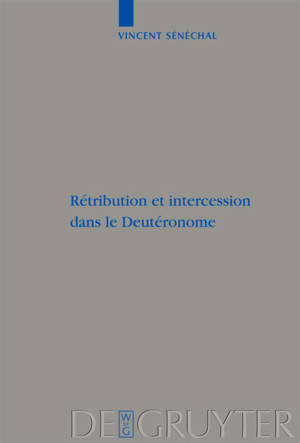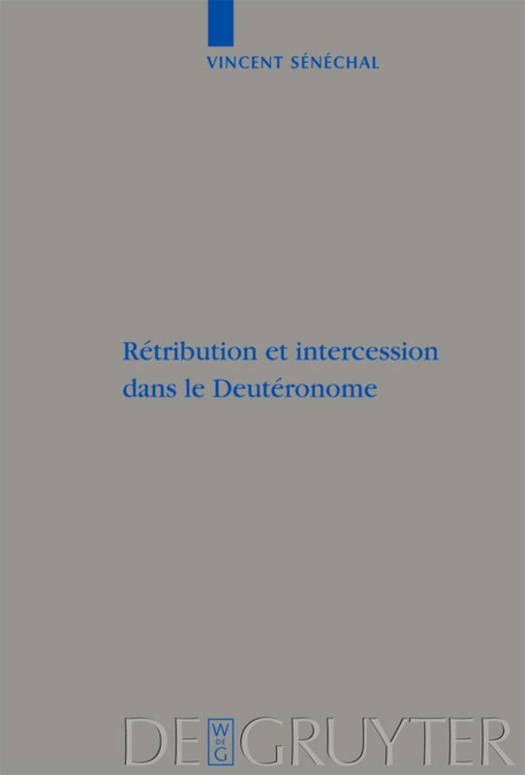
- Retrait gratuit dans votre magasin Club
- 7.000.000 titres dans notre catalogue
- Payer en toute sécurité
- Toujours un magasin près de chez vous
- Retrait gratuit dans votre magasin Club
- 7.000.0000 titres dans notre catalogue
- Payer en toute sécurité
- Toujours un magasin près de chez vous
Description
In this book Vincent Sénéchal presents a detailed inquiry to solve an enigma: Why does the retelling of the Golden Calf narrative in Deut. 9-10 keep silent on the punishments described in the original account of Exod. 32-34? The absence of punishment in Deut. 9-10 is more than surprising in Deuteronomy, since its theology is strongly oriented to obedience to the law given by YHWH and since it stresses particularly the seriousness of violation of the first commandment. This dissertation aims to investigate the reasons why such an omission occurred in the course of the redactional process and in what sense it is meaningful for the characterization of divine justice in the whole book. The author first offers a comprehensive state of recent exegetical research on Deuteronomy and the Pentateuch. In the course of the investigation, he reflects on categories such as sin, retribution and intercession and analyses the different kinds of retribution present in the book. He then studies the redaction history of Deut. 9:7-10:11 and describes its place and function both in the composition of the Pentateuch and in the history of Israel during the first decades of the Persian period. This historical contextualization leads to several hypotheses to solve the puzzling enigma.
Spécifications
Parties prenantes
- Auteur(s) :
- Editeur:
Contenu
- Nombre de pages :
- 518
- Langue:
- Français
- Collection :
- Tome:
- n° 408
Caractéristiques
- EAN:
- 9783110224399
- Date de parution :
- 10-12-09
- Format:
- Livre relié
- Format numérique:
- Genaaid
- Dimensions :
- 156 mm x 234 mm
- Poids :
- 898 g

Les avis
Nous publions uniquement les avis qui respectent les conditions requises. Consultez nos conditions pour les avis.






